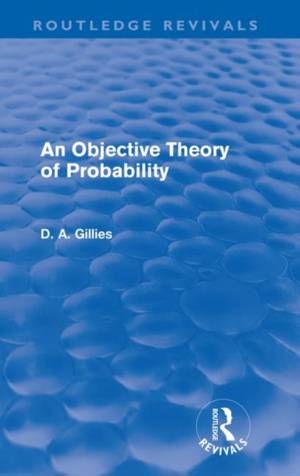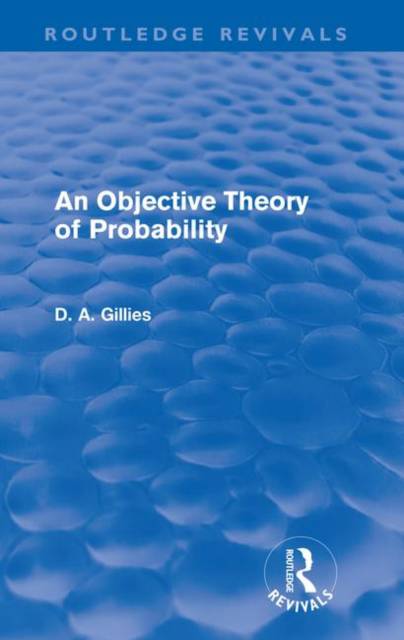
- Retrait gratuit dans votre magasin Club
- 7.000.000 titres dans notre catalogue
- Payer en toute sécurité
- Toujours un magasin près de chez vous
- Retrait gratuit dans votre magasin Club
- 7.000.0000 titres dans notre catalogue
- Payer en toute sécurité
- Toujours un magasin près de chez vous
Description
This reissue of D. A. Gillies highly influential work, first published in 1973, is a philosophical theory of probability which seeks to develop von Mises' views on the subject. In agreement with von Mises, the author regards probability theory as a mathematical science like mechanics or electrodynamics, and probability as an objective, measurable concept like force, mass or charge. On the other hand, Dr Gillies rejects von Mises' definition of probability in terms of limiting frequency and claims that probability should be taken as a primitive or undefined term in accordance with modern axiomatic approaches.
This of course raises the problem of how the abstract calculus of probability should be connected with the 'actual world of experiments'. It is suggested that this link should be established, not by a definition of probability, but by an application of Popper's concept of falsifiability. In addition to formulating his own interesting theory, Dr Gillies gives a detailed criticism of the generally accepted Neyman Pearson theory of testing, as well as of alternative philosophical approaches to probability theory. The reissue will be of interest both to philosophers with no previous knowledge of probability theory and to mathematicians interested in the foundations of probability theory and statistics.Spécifications
Parties prenantes
- Auteur(s) :
- Editeur:
Contenu
- Nombre de pages :
- 250
- Langue:
- Anglais
- Collection :
Caractéristiques
- EAN:
- 9780415618656
- Date de parution :
- 02-03-12
- Format:
- Livre broché
- Format numérique:
- Trade paperback (VS)
- Dimensions :
- 140 mm x 216 mm
- Poids :
- 308 g

Les avis
Nous publions uniquement les avis qui respectent les conditions requises. Consultez nos conditions pour les avis.






